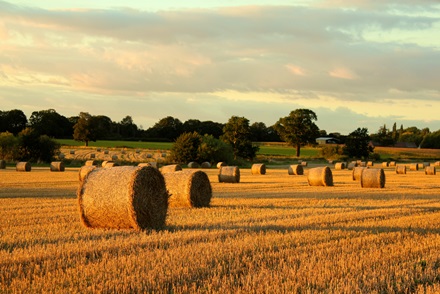Spotlight on: Plant science

The Biologist Vol 62(2) p30-31
Plant science is the modern, multidisciplinary study of plants, once better known as botany. This discipline has developed from the collection and classification of plants, algae and fungi into a branch of the biosciences concerned with solving some of the world’s most pressing issues.
Why is it important?
Green plants provide most of the world's molecular oxygen and, by harnessing the sun's energy, sustain most of the Earth's ecosystems. They have also been a crucial source of food, medicine and materials throughout human history.
Botany is no longer confined to the study of how and why plants grow the way they do. Today, plant scientists are responding to some of the most critical challenges of the 21st century, including ensuring food security for a growing global population, helping us adapt to and mitigate climate change, protecting biodiversity and improving global health.
What careers are available?
There is a shortage of plant scientists in the UK and many other countries around the world. Things are changing, however. Plant science is at the forefront of investment and research focused on growing more efficient and healthy food, developing sustainable agricultural practices, and producing green energy and products such as biofuels and bioplastics.
Plant scientists contribute to a diverse range of key industries including agriculture, pharmaceuticals, forestry, food and industrial biotechnology. According to a recent report on the industry, the sector believes that more plant scientists must be trained to help translate cutting edge plant science into useful applications across these industries. Other careers are available working in botanical gardens, zoos, museums and with sports turfs.
How do I get into it?
Botany degrees have largely been replaced by plant science courses, some of which are joint degrees combined with related subjects such as soil science, cellular biology and wildlife. Plant scientists can also take more general bioscience undergraduate degrees and specialise later in their academic careers. Degrees in horticulture and agriculture are also available from many universities in the UK, especially in more rural areas.
Where can I find out more?
- The UK Plant Sciences Federation represents the UK's plant and agricultural science community.
www.plantsci.org.uk - Science and Plants for Schools promotes plant science at school level and has information about studying it at university.
www.saps.org.uk - There are many more organisations and charities around the world that have information on specific branches of crop science such as forestry, agriculture and food production. A list of links can be found on the Global Plant Council's website.
globalplantcouncil.org/resources
At a glance

Profession: Senior curator, British and Irish Herbarium, Natural History Museum
Qualifications: BSc in botany, PhD in fungal systematics
Interests: Invasive species, climate change, fungal systematics
What does your job involve?
My job is pretty diverse and complex by curatorial standards. I manage the 620,000 specimens of The British and Irish Herbarium at the Natural History Museum, and use those materials to do research, mostly on environmental change.
I represent the museum in a variety of public engagement activities and in ensuring organisms that can control invasive species are effective. I also work closely with the museum's entomology experts to look at the interrelationship between the plants and insects in our collections.
Then there is my forensic case work, where I help the police by analysing vegetation fragments to link suspects to crime scenes – mostly involving murder or attempted murder.
I am based in the museum at Knightsbridge 60% of the time, but my schedule is pretty fluid. With the forensic work, in particular, if I get a call, I have to go, straightaway. I may end up having to be at the crime scene for up to three days.
How much can you tell us about the forensic work you do?
The majority of murders are in the built or domestic environment. So the ones in open landscapes, where there is vegetation evidence, tend to be particularly horrific, or someone has gone to a lot of effort to hide the body. It tends to be seriously organised crime or child murders. In other words, high profile cases that the public find very disturbing.
How did you get into plant science?
I think it's what they call a 'non-traditional' route. As a child I was obsessed with plants, but I went a bit crazy at secondary school and didn't do well academically. I worked in a nursery and tried horticulture at Kew, but realised I hated gardening. I'd been reading degree-level texts on plants since I was 10, which should have given me a hint of what I should do, but it wasn't until I was 27, after several years of dithering, that I took a degree in botany. I went on to do a PhD in the systematics of aquatic fungi called Peronosporomycetes. I did a few years in field botany, as there are very few jobs in fungal taxonomy anymore – that discipline has just been ravaged. Then I took roles in historical botany and curation.
Do you fear for the future of systematics and taxonomy?
It's just about holding its own in the UK, but we'll probably see a gradual and continued decline. In other countries such as China, it's relatively buoyant and there has been lots of investment. What's needed here is a fundamental change in how we view science and, unfortunately, we're a long way off that.
Where do you think plant science will be important in the future?
Using plant science to understand how plants respond to environmental change will be key. Perennial ryegrass, for example, is probably the most important grass in Britain – it's on football pitches, lawns and the fields used to graze cattle. If it were to start disappearing it would be catastrophic. Without sounding too dramatic, there are some pretty significant changes to the biosphere round the corner. Hopefully, we'll start to see people with knowledge of whole organisms, ecology and plant biodiversity valued more.


